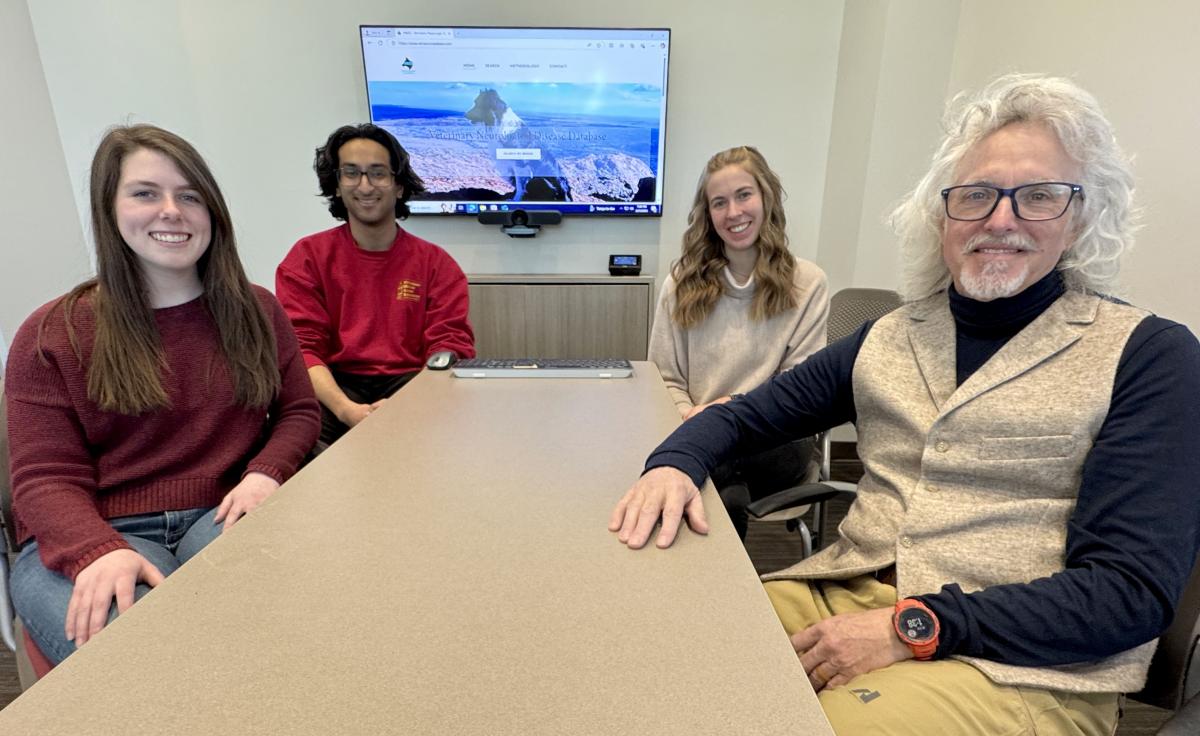
Ironically it was a human neuroanatomy course during her master’s coursework that led to Kat Dalzell’s passion for veterinary neurology.
The third-year veterinary medicine student’s passion has increased at Iowa State after being one of the driving forces in the development of a new veterinary neurologic disease database.
“Working with Dr. (Rod) Bagley and spending time with other mentors during school breaks has further cemented not only my fascination with neurology, but how I can use that to make a positive difference in the lives of animals and their owners in the process,” Dalzell said.
Dalzell and fellow third-year vet student Avi Bevoor have taken the next step with their interest in veterinary neurology. Working with Bagley, professor of veterinary clinical sciences and a diplomate in the American College of Veterinary Internal Medicine (ACVIM) in Neurology, the pair have created a unique database.
The Veterinary Neurologic Disease Database (www.vetneurodatabase.com) is a resource which seeks to help clinicians examine and diagnose patients with neurologic diseases in the exam room. Bagley has long desired to create such a database, not only for the profession, but for veterinary students to utilize and learn about neurologic disease.
“This is something I had wanted to create for a few years,” Bagley said. “While this was my vision, Kat and Avi certainly made that vision a reality.”
As co-editors-in-chief, Dalzell and Bevoor gathered, sorted and verified the scientific references that are the foundation of the project. Since then, Bevoor has taken on the web development portion of the database and is responsible for the creation and upkeep of the site.
The work was presented at the 2024 ACVIM Forum.
“While Avi has been working on website development, Rebecca Wilson, our associate editor, and I have continued to work on generating clinical descriptions of each neurologic disease in each breed,” Dalzell said. “These clinical summaries will ultimately be published in the next phase of the website.”
“It has been especially rewarding getting to apply these neurologic concepts as well as see the diseases in equine and small animal cases that I have been involved in while working in private practices,” said Wright, a second-year veterinary student.
The vast amount of information on the subject has been daunting at times for the students.
“When I first started creating the database, I thought I would learn everything there is to know about veterinary neurology,” Bevoor said. “In reality, there is a reason that residencies and post-graduate education exits.
“It is very difficult to fully grasp any aspect of medicine without practicing it firsthand. While I have still learned an enormous amount about neurology through reading and discussing the scientific papers we have collected, the most beneficial skill I have gained is the ability to understand the complex concepts being described and distilling that information to mesh with the rest of the information we have collected.”
This project is a natural extension for the student trio. Dalzell and Bevoor both plan to make neurology a career after pursuing a residency in the area while Wilson is hoping to do an equine residency with a special interest in neurology. All see the database project as an important part of that career path.
“Creating this tool to promote education and centralize information on neurologic diseases is especially meaningful to me,” Dalzell said. “Being involved in this project has allowed me the opportunity to explore my passion.”
“This database has given me the opportunity to explore my interest in neurology more fully in a way which allows me to create something that can benefit the field overall,” Bevoor said.
February 2025
